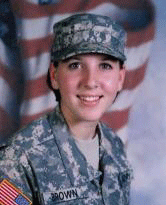I know that I've talked about role models before in my blogs, like in the Dove commercial. So I got to thinking on who I thought was a good role model for young girls in particular and why. I realized that I don't know much about celebrities or famous people like that in order to choose from that category, and the only people I could think of were characters from books. In my opinion, a character from a story is almost just as good as a real person to look up to and admire. As long as they have good qualities and characteristics, does it really matter?
Of course, I thought of many different characters that I admire. But one that stood out to me was Miss Elizabeth Bennett from
Pride & Prejudice, both a famous novel written by
Jane Austen and a movie. She is a strong female character, especially within her time period. She is what you may call a "rebel" in society's standards during that time. She was always reading, walking to places (rather than taking a carraige), and was not afraid of speaking her mind. Since the movie came out pretty recently, I'll refer more to the movie than the novel -- even though they're both about the same. Also because I haven't read the book in a while, so the movie is more fresh in my mind.

Keira Knightley plays the role of Elizabeth Bennett in the movie. She is the second oldest of four girls, with an easy-going father and a gossiping mother. She is closest with the oldest sister, Jane, who is also seen as the beauty of the family. Elizabeth is described (especially in the book) as being plain and not-so-beautiful. She meets Mr. Darcy (her later love interest) at a town ball, and runs into him several times after. They don't get along at first, but eventually get to know each other. Elizabeth is offered a proposal by Mr. Collins, a cousin of the family who is to inherit the Bennett's estate. In those days, when the father died, the estate and inheritance would go to the next of kin that was male -- even if there was no son. Therefore, the women of that family would basically be out on the streets to fend for themselves. So, obviously, this was a big deal when Elizabeth was proposed to by Mr. Collins because it meant that she would be well-off and taken care of. However, Elizabeth being the rebel that she is, denied the proposal because she believed that she should marry for love.
All of this is important because Elizabeth rejected the standards and pressures of society, her mother and family in order to be happy. I admire this because I am sure that many women during that time did not do the same. Not only was she her own person in little ways such as reading and learning and taking walks in fields (doing "un-ladylike" things), but she also was her own person in the biggest way possible in denying that proposal. This shows her as an empowering female character and great role model for women to look up to. The character inspires women to be themselves, speak their minds, and not to give into the pressures of society. She is strong and independent and those are just some of the qualities that I love about her.

While all of that is true, and there is much more to her character that is positive, there is something that I hadn't realized until Professor Rellihan pointed it out to me. Even though it seems like Elizabeth Bennett is an empowering role model for women (which she still is in some ways), the movie still ends with her as Mrs. Darcy -- a patriarchal ending. The last scene in the movie consists of Elizabeth and Mr. Darcy sitting together, and he continues to call her "Mrs. Darcy" after every little kiss and she swoons over it. Some would argue that this would teach girls to find their own happiness in a man, or that they will not be happy unless they are married or in love with a man. Honestly, I never viewed it in that way until someone pointed that out. So I think it has a lot to do with the viewer rather than the storyline. How the viewer interprets the storyline and the characters is the biggest issue.
I am a pretty big "hopeless romantic," so I am a sucker for these kind of movies even if it does have a patriarchal ending. I just think that it's interesting, now that I do have this type of view in mind, to think about other movies that I had never noticed ended this way. In my opinion, even though the movie ended with that type of scene (which the book did not), it still does not negate the positive qualities that I see in Elizabeth Bennett's character. I still view her as empowering and going after what she wants.
Let me know what you all think. =)
<3






